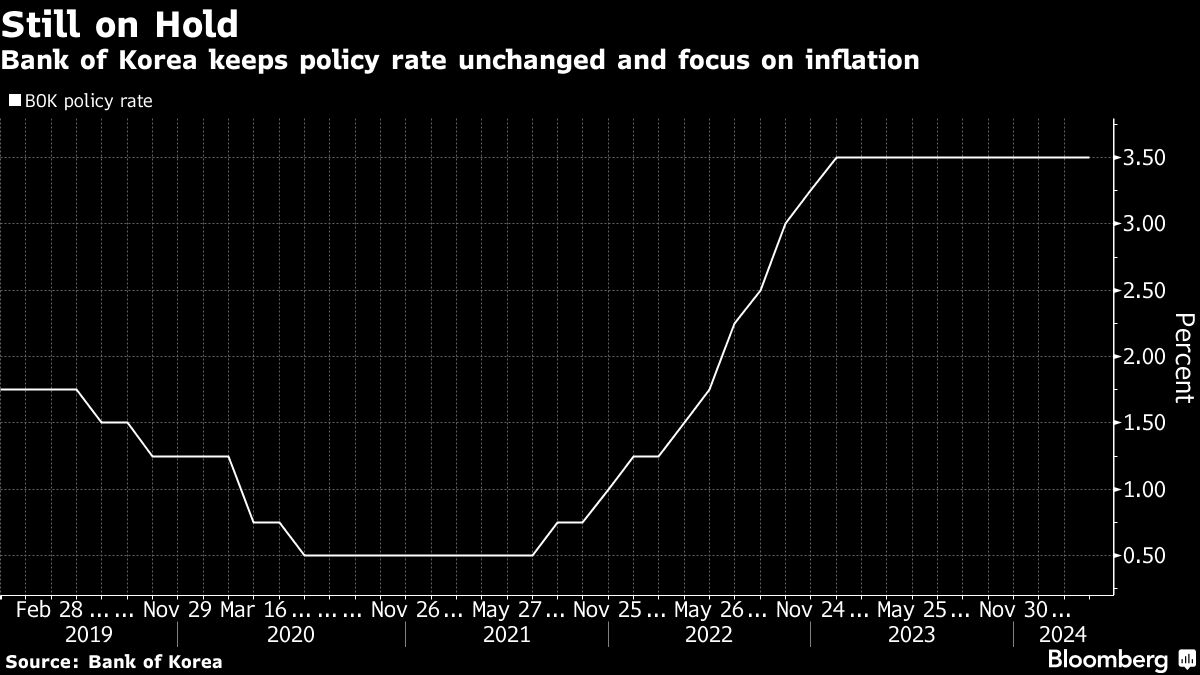(Bloomberg) — The support rate for South Korean President Yoon Suk Yeol fell to its lowest since he took office in 2022 after a stinging loss in an election last week that left him in a weakened positioned for the remaining three years of his term.
Most Read from Bloomberg
The approval rate for Yoon fell to 23% in a weekly tracking poll released Friday by Gallup Korea, down 11 percentage points from the last survey conducted before the elections. His previous low was 24% in September 2022.
Those who had an unfavorable view of Yoon’s government faulted him for his management of the economy as it battles inflation, as well as his communication skills, according to Gallup Korea. The poll was conducted among 1,000 respondents across the country and had a margin of error of plus or minus 3.1 percentage points, Gallup Korea said.
Yoon has little room to move on the legislative front after the April 10 vote where his conservative People Power Party bloc lost seats and was reduced to 108 spots in the 300-seat unicameral parliament known as the National Assembly. The opposition Democratic Party bloc expanded its majority with 175 seats, according to the National Election Commission. The DP alliance held 169 seats before the vote.
Yoon pledged to listen to the people and change direction but has yet to announce his plan to overhaul the government after the loss in the election, which was the only national referendum during his single, five-year term. Yoon’s prime minister, chief of staff and many senior secretaries have offered to resign to pave the way for change.
Read more: Big Loss Turns Pro-Business Yoon Into Lame Duck in South Korea
When given a choice between Yoon’s pro-investor policies and the Democratic Party’s push to increase taxes on the wealthy and the sprawling conglomerates known as chaebol that dominate the corporate landscape, voters mostly went with the opposition. The Gallup survey showed that 47% of respondents were “satisfied” with the results, while 43% said they were “dissatisfied.”
Rising costs of living have been fueled by weakness in the won, which has been one of Asia’s worst currency performers this year. Bank of Korea Governor Rhee Chang-yong said last week the bank’s board remains focused on fighting inflation, which outstripped expectations in March and stayed above its 2% target.
Surveys showed the top issues for voters ahead of the election were tackling inflation eating into paychecks, reining in housing prices and providing strength for the country’s export-driven and slowing economy.
The vote also took place as a prolonged walkout by trainee doctors upset over plans from Yoon’s government to increase medical school seats clouded the race. The latest Gallup survey indicated about half of respondents wanted to see a compromise reached to end the labor dispute that started in February.
The government on Friday accepted a proposal by medical schools to adjust the number of seats within a range of 50% to 100% of the quota allocated initially for the 2025 school year, in a move that could help bring a resolution to the standoff that has strained the health-care system.
–With assistance from Seyoon Kim and Niluksi Koswanage.
(Updates with move on medical school seats in final paragraph.)
Most Read from Bloomberg Businessweek
©2024 Bloomberg L.P.
